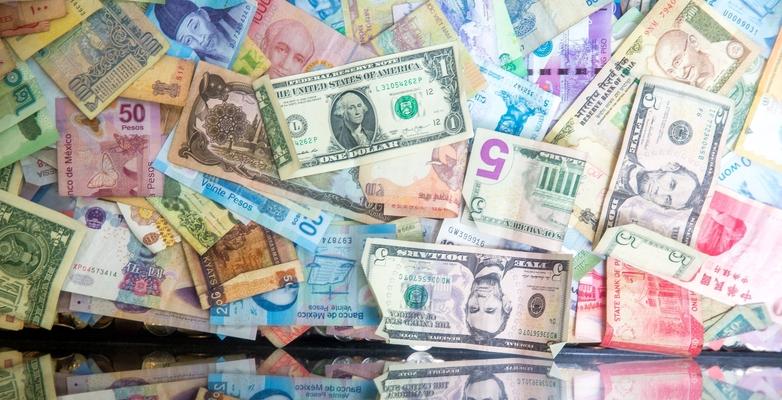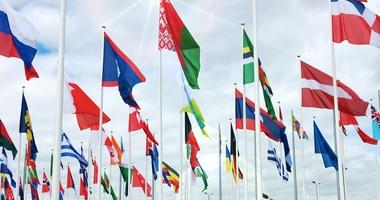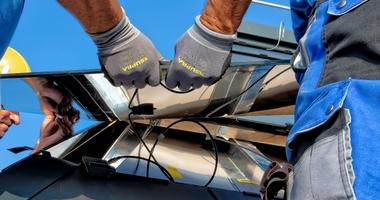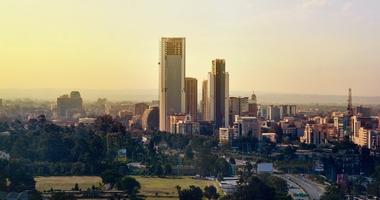
Why Should Climate Advocates Be Watching the World Bank?
As the World Bank begins its annual meeting in Marrakech, we speak with an advocate working to transform international finance into a force for climate progress.
6 min readWhile news that 2023 is on course to become the hottest year on record seizes the headlines, one of the most critical sectors in turning this trend around is also one of the most overlooked: Multinational banks and the international financial system.
Multilateral development banks (MDBs) are international financial institutions funded by multiple nations that fund economic development projects like energy and infrastructure in the Global South (among others). They have an enormous role to play in creating a pathway for a just clean energy future for everyone, but especially for Global South nations.
Sitting at the very top of the MDB pyramid and setting the tone for much of international finance is the World Bank, which lent out $91.4 billion in distributions in 2023 alone.
As the bank holds its annual meeting with the International Monetary Fund in Marrakech, Morocco this week, we spoke with Courtney Morgan – a climate campaigner at the African Climate Reality Project – to learn why climate advocates must pay attention to the bank and other MDBs and how we can effectively impact policy at these notoriously opaque institutions.
Who are you and what do you do?
I am an activist from South Africa, who has been in the activist space for most of my life, from youth formations and community upliftment, to the formal NGO space. I am an eco-feminist and a social justice activist, I was involved in the Fees Must Fall movement at university, have worked in the food sovereignty space, contributed to the writing of a Climate Justice Charter for South Africa. I am now a campaigner at the African Climate Reality Project working on climate literacy and public finance.
What is the World Bank?
The World Bank is a multilateral development bank which is tasked with financing development projects, through a number of mechanisms. The World Bank was established toward the end of World War Two, when, globally there was a need for a number of countries to recover economically. Essentially, they were set up to enhance economic cooperation across the globe and invest with the purposes of reconstructing the global financial architecture after the wars.
What makes climate finance a crucial topic for climate activists?
Unfortunately, we live in a global capitalist system that revolves around money, and economics and change requires financing.
Historically, financial flows have been used to cripple entire regions by locking some of us into debt cycles. Financing has led to harmful structural adjustment programs and policy interference and has been used to limit or bolster development in different regions.
In times of crisis, finance has the potential to either meaningfully contribute to reconstructing a system that delivers equity, or it can be used to further the gap between the north and the south, and further entrench destructive and exploitative relationships.
We also know that climate change requires urgent and mass-based change, in policy and behavior. This needs financing. We need to ensure that effective mitigation, adaptation and loss and damage financing is being channeled to those who need it most. We need to be able to consult on climate finance deals, campaign against financing we do not support, and provide oversight of these climate finance deals so we can make sure that climate finance is used for justice outcomes and meaningful development.
How does climate finance show up in the context of your work?
The Africa branch has a dedicated public finance campaign. Through this campaign we work with the Fair Finance Coalition of Southern Africa, to monitor and engage with public finance institutions across the region. Particularly the African Development Bank, which is one of the biggest lenders on the continent.
We do this by attending country strategy consultations. We have written an open letter calling for a fossil fuel exclusion plan from the bank and we also do policy assessment every second year on the issues of climate change, transparency, and power generation (among others).
Climate finance shows up in the work because the region we find ourselves is the target of decarbonization efforts and is set to receive more climate finance going forward. An example of this are Just Energy Transition Partnerships (JETPs), with two already being agreed to on the African continent. These are the kinds of deals we see as important to monitor and form campaigns around, as they are landmark deals that can set precedent for future deals.
Why are MDBs important for the average person to pay attention to?
MDBs have a mandate to support development. They play an integral role in the financial system and have a huge impact on the global economics. MDBs also often stand as intermediaries for other deals, so even if not lead by them, there is a level of involvement.
I believe that the average person should pay attention, particularly to their regional MDBs, because these banks, depending on the shareholders and members, use public funds to finance projects. Thus, there is a social responsibility that a lot of these MDBs have, to invest in social development – and we should be able to dictate what social development looks like, for us, using public funds. It is also important because MDBs are institutions that have the potential to shift entire development trajectories, just like they did post-World War Two – and so they must be held to their public mandate.
Is there a role we can play in influencing MDBs?
Yes. While the economic system feels big and intimidating, we must remember that it is not something that is happening TO us, but that we are part of it.
Part of the difficulty is that economic jargon is exclusionary, so people feel that we cannot influence change. But you do not need to understand the jargon if you understand justice and equity.
We play an oversight role, as civil society. We can also participate in consultations at the local, regional, and international level. We can continue to campaign and push for reforms and we can engage with the MDBs who have civil society forums.
Do you have any tips for people who are starting to engage with climate finance work?
Firstly, in order to do climate finance work, you do NOT have to be an economist – in fact a diversity of opinions and lived experience will only enrich the work. So don’t feel that you have to become an economist to work on climate finance. There are amazing NGOs and political economists doing the work of making the deals, policies and data more accessible – there is now a gap of communicating those resources to the public and to communities.
So, stay educated, stay up to date and don’t be afraid to ask for clarity on terms. Finance deals are shrouded in secrecy and over-complicated on purpose – we have a right to ask for detail!
In addition, we call for a principled approach to climate finance, which means that when we consult, it won’t always be on the detail of the deal, but we do it using a standard set of guiding principles which guide our work.
So, a tip is to find an approach that can be applied to all deals, and be firm on those calls. For example, calls for transparency, accountability, equity, and human rights can be expanded on in any context, ultimately – justice outcomes must be centered.
Finally, try as best you can, to humanize finance. Financial deals have real people in real communities that are affected by them, amplify lived experience and the stories of people bearing the brunt and also amplify stories of people who are rising up against these powers. This will inspire the average person to take action in their small ways. For example, the Fair Finance Coalition Southern Africa not only sends official letters and engages with MDBs on the funding of Medupi (a coal fired power station in Lephalale, South Africa) but we also gave the community an opportunity to tell their stories about living in the shadow of Medupi.
While climate finance can initially seem intimidating, advocates like Courtney show we can all make change happen. To stay up to date with the latest in the movement for climate solutions, sign up for our digital advocate list.




